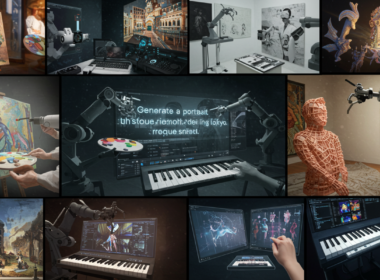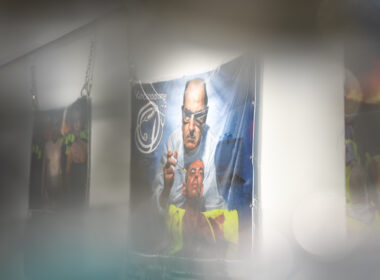I was at a dinner the other day, and the only sound filling the air was the rhythmic tapping of fingers on smartphone screens. People sit together, yet apart, engrossed in their virtual worlds. It’s a scene that’s become all too familiar in our smartphone-dominated society, where real-life conversations take a backseat to the digital planet. It struck me how our devices, while connecting us to a virtual universe, can often disconnect us from the beauty of the present moment.
Now that our smartphones have become extensions of ourselves, it’s undeniable that technology has transformed the way we live, communicate, and interact with the world. But the concerning question arises: has our reliance on these digital devices led us down a path where we’re becoming not just tech-savvy but also mindless? Are we relegating the once-mighty human brain to a mere receiver of information?
Scrolling through the vast expanse of social media, one can’t help but notice the overwhelming influence of groupthink, a phenomenon that can be termed the “herd mentality.” We find ourselves grazing on an endless pasture of information, seldom pausing to digest or reflect. To simply put it another way, we find ourselves swept up in trends, opinions, and behaviours endorsed by the collective, often without pausing to question or think critically. This ceaseless scrolling breeds a superficial understanding of complex topics, leading to regurgitated opinions rather than original insights.
Secure Your Cognitive Sovereignty
The consequences of this digital dependency are multifold. First and foremost, our ability to recall information has been profoundly affected. The “Google it” culture has replaced the art of remembering facts or details, leaving our brains free for more pressing matters—or so we think. In reality, it’s eroding our capacity for critical thinking, problem-solving, and creative reasoning. The brain, much like a muscle, needs exercise to stay fit. When we outsource our memory to devices, we neglect this vital mental workout. This over-reliance leaves us mentally flabby, unable to access critical information without a digital crutch.
Are You Addicted to Social Media?
Social engineering, a technique that manipulates individuals into revealing confidential information, plays a central role in this digital transformation. It leverages our desire for connectivity, the fear of missing out, and the pursuit of social validation. Social media, with its algorithms and echo chambers, guides us into ever-narrowing corridors of thought. We’re exposed to information that reinforces our existing beliefs, further entrenching us in our ideological bubbles. It’s easier than ever to lose sight of critical thinking when we’re cocooned in the comfort of like-minded voices.
Social engineering takes on new dimensions as we willingly surrender our cognitive autonomy. Manipulative forces capitalise on our digital habits, crafting narratives that exploit our biases and emotions. The result? We become pawns in a grand game of influence, often oblivious to the strings being pulled.
Securing Our Minds in the Digital Age
However, all is not lost. We can reclaim our intellectual independence and strengthen our cognitive faculties while navigating the digital landscape. Here are some practical steps to consider:
1. Digital Detox: Regularly disconnect from the digital realm. Dedicate gadget-free hours or even days to reflect, read, and engage in analogue activities that stimulate your mind.
2. Diverse Perspectives: Seek out information that challenges your beliefs. Actively engage with diverse viewpoints to cultivate critical thinking.
3. Critical Media Literacy: Educate yourself on the tactics used in social engineering, such as clickbait, filter bubbles, and fake news. Question information sources and cross-verify facts before accepting them as truth. Cultivate a healthy scepticism towards viral content and strive to form your own conclusions.
4. Mindful Consumption: Be intentional about your digital interactions. Consciously choose the content you engage with, unfollow accounts that perpetuate echo chambers, and seek content that broadens your horizons. Don’t doubt The Power of Social Media Influencers.
4. Limit Screen Time: Set boundaries for your smartphone and social media usage. Track your screen time and establish restrictions to curtail mindless scrolling.
5. Critical Thinking Exercises: Engage in activities that stimulate critical thinking, such as puzzles, debates, or writing.
6. Prioritise Human Connection: Balance online interactions with real-world connections. Engage in face-to-face conversations, join clubs or communities of shared interests, and cultivate meaningful relationships. I’ll never forget Harriet’s house rule: no phones at the dining table. I think that’s something worth emulating.
Conclusion
Smartphones are undoubtedly powerful tools that have enriched our lives in countless ways. However, their influence on our cognitive processes and vulnerability to social engineering should not be underestimated. Remember this always: our minds are our most valuable assets.











